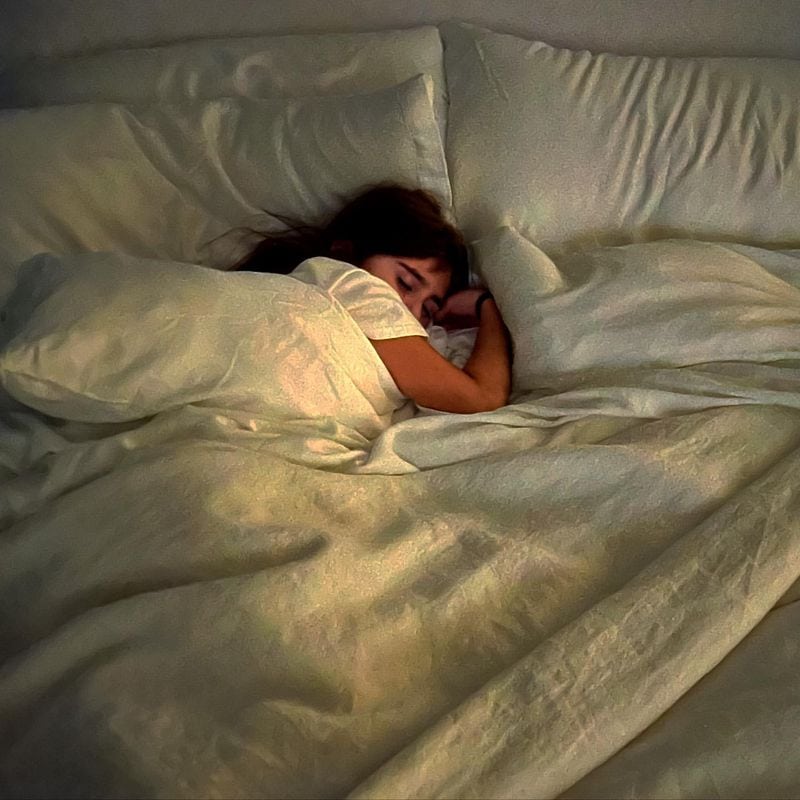Sleep is a vital part of our daily routine, yet it is often surrounded by myths and misconceptions. These myths can influence how we approach sleep, sometimes to our detriment.
In this blog post, we will debunk eight common myths about sleep, providing you with accurate information to help you get a better night’s rest.
1. Myth: You Can Catch Up on Sleep Over the Weekend

Many people believe they can “catch up” on lost sleep during the weekend. While extra rest can help you feel more alert, it doesn’t fully compensate for sleep deprivation.
Regular sleep deprivation can lead to a “sleep debt,” which may have long-term health consequences. Instead of waiting for the weekend, try to maintain a consistent sleep schedule throughout the week.
This approach ensures that your body gets the rest it needs daily, improving both mood and cognitive function. Balancing work and leisure with adequate sleep can enhance overall well-being.
2. Myth: Alcohol Helps You Sleep

Some believe that a nightcap helps induce sleep. While alcohol may initially make you feel drowsy, it disrupts the sleep cycle, particularly during REM sleep.
This disruption can lead to poor sleep quality and daytime drowsiness. Instead of relying on alcohol to fall asleep, consider establishing a calming bedtime routine.
Activities such as reading or listening to soothing music can promote natural sleepiness. Maintaining a quiet and dark sleeping environment also enhances sleep quality, leading to more restorative rest.
3. Myth: Snoring is Harmless

Snoring is often dismissed as a harmless annoyance, yet it can indicate underlying health issues. While occasional snoring might be benign, persistent loud snoring could be a sign of sleep apnea.
Sleep apnea is a condition where breathing repeatedly stops and starts, leading to disrupted sleep. If you or a partner notices loud snoring paired with gasping or choking sounds, seek medical advice.
Treatments are available that can improve sleep quality and overall health. Ignoring this myth can contribute to significant health problems if left unchecked.
4. Myth: More Sleep is Always Better

The belief that more sleep is inherently beneficial isn’t always true. Oversleeping has been linked to various health issues, such as increased risk of diabetes and heart disease.
Quality, not just quantity, matters when it comes to sleep. Rather than focusing solely on getting more hours, aim for a balanced sleep schedule that suits your lifestyle. Regular physical activity and a healthy diet can also promote better sleep quality.
Listen to your body’s needs, and consult a healthcare professional if you’re consistently experiencing excessive tiredness.
5. Myth: Everyone Needs Eight Hours of Sleep

The “eight-hour rule” is a generalized guideline that doesn’t apply to everyone. Individual sleep needs vary based on factors such as age, lifestyle, and genetics.
While some adults may thrive on seven hours, others might require nine. It’s crucial to pay attention to how you feel during the day to determine your ideal amount. Experimenting with different durations and maintaining a sleep diary can help identify your perfect sleep rhythm.
Personalized sleep patterns ensure that you are not sacrificing productivity or wellness for the sake of a myth.
6. Myth: Watching TV Helps You Fall Asleep

Many people use television as a sleep aid, but it can actually hinder restful sleep. The blue light emitted from screens interferes with the production of melatonin, a hormone necessary for sleep.
This can delay sleep onset and affect sleep quality. Instead of watching TV, try engaging in activities that promote relaxation, such as meditation or gentle yoga.
Preparing the bedroom as a technology-free zone can further encourage better sleep habits. Turning off screens an hour before bed supports the body’s natural sleep-wake cycle.
7. Myth: You Can Train Yourself to Need Less Sleep

The notion of training oneself to require less sleep is a myth. While some people claim to function well on minimal rest, long-term sleep deprivation affects health and cognitive performance.
Most adults need seven to nine hours of sleep for optimal functioning. Lack of sleep can impair decision-making, attention, and creativity. Prioritize sleep by setting boundaries with work and social commitments.
Creating a regular bedtime routine can help signal to your body that it’s time to rest. Recognize that sufficient sleep is a non-negotiable part of a healthy lifestyle.
8. Myth: Napping is Only for the Lazy

Napping often carries a stigma of laziness, yet it can be a healthy part of a balanced sleep routine. Short naps can improve alertness, mood, and performance, without affecting nighttime sleep.
Limit naps to 20-30 minutes for a quick energy boost. If you find yourself consistently needing longer naps, it may indicate insufficient nighttime sleep. Listening to your body’s signals helps determine the best nap duration.
In many cultures, napping is a valued tradition, not a sign of idleness. Embracing naps can be a smart strategy for managing energy throughout the day.

